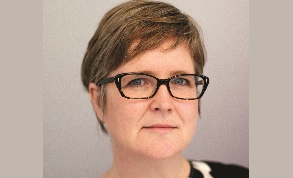Overall balance masks worrying disparity, PAC warns
In a progress review on its inquiry into NHS financial sustainability, the influential Commons committee said the top-level picture hid warning signs that NHS financial health was getting worse. Increasing loans to support trusts in difficulty, raids on capital budgets to cover revenue shortfalls and the growth in waiting lists and slippage in waiting times did not indicate a sustainable position, it said.
Offsetting surpluses and deficits in the presentation of the overall budget results was described as ‘unacceptable’. A £1.2bn underspend by NHS England in 2017/18 offsetting deficits in trusts (£991m) and clinical commissioning groups (£213m) suggested funding may not be reaching the right parts of the system.
The committee’s report also highlighted major variations between trusts with performance ranging from a £77m surplus to a £141m deficit – and 10 trusts accounting for 69% of providers’ total net deficit. ‘No one should take solace from a top-level financial picture that masks significant local disparities,’ said committee chair Meg Hillier. ‘If the long-term plan is to be more than just an aspiration then government must engage fully with the detail and ensure necessary resources are directed to the right places.’
The committee said that the long-term funding settlement for the NHS and the NHS long-term plan provided an opportunity to bring stability back to the health system. But it questioned whether assumptions that trusts and CCGs would universally break even within five years were ‘overly optimistic’. It called for planning guidance for 2020/21 to clarify the arrangements and timeline for achieving annual financial balance as well as dealing with historic debt in organisations with the largest deficits.
The committee reiterated its concerns about staffing shortages, stating there was ‘little sign of the staffing shortfall improving’. Banking on a drastic improvement in retention or attracting more employees from overseas were described as ‘a risky strategy’. With Brexit adding further complications and concerns about the numbers of senior staff planning to retire, the committee called for the Department of Health and Social Security to provide further details by July on how recruitment and retention issues will be addressed.
NHS Providers’ deputy chief executive Saffron Cordery (pictured) said the vision set out in the long-term plan would not be achieved while there are still over 100,000 staff vacancies across the NHS. ‘We expect the upcoming workforce implementation plan to set out a direction of travel to improve staff retention and tackle these shortages through both overseas recruitment and a commitment to grow the domestic workforce in the longer term,’ she said.
The committee’s report cited HFMA evidence underlining that workforce issues would continue to affect providers’ financial position – either buying in extra support or incurring contractual penalties for not delivering commissioned services.
The PAC also drew attention to the uncertainty of funding in key areas. The five-year settlement for the NHS only relates to NHS England, not the Department’s entire budget. This means that the service still does not know the funding that will be available for capital investment, adult social care, public health and training budgets. Despite this, sustainability and transformation partnerships and integrated care systems (ICSs) had been asked to develop five-year plans by the autumn. Again, the committee said the Department needed to clarify – by July – the assumptions that these plans should be built on.
At the same time, the Department together with NHS England and NHS Improvement should define the governance arrangements that needed to be in place to ensure ICSs were effective.
Related content
We are excited to bring you a fun packed Eastern Branch Conference in 2025 over three days.
This event is for those that will benefit from an overview of costing in the NHS or those new to costing and will cover why we cost and the processes.